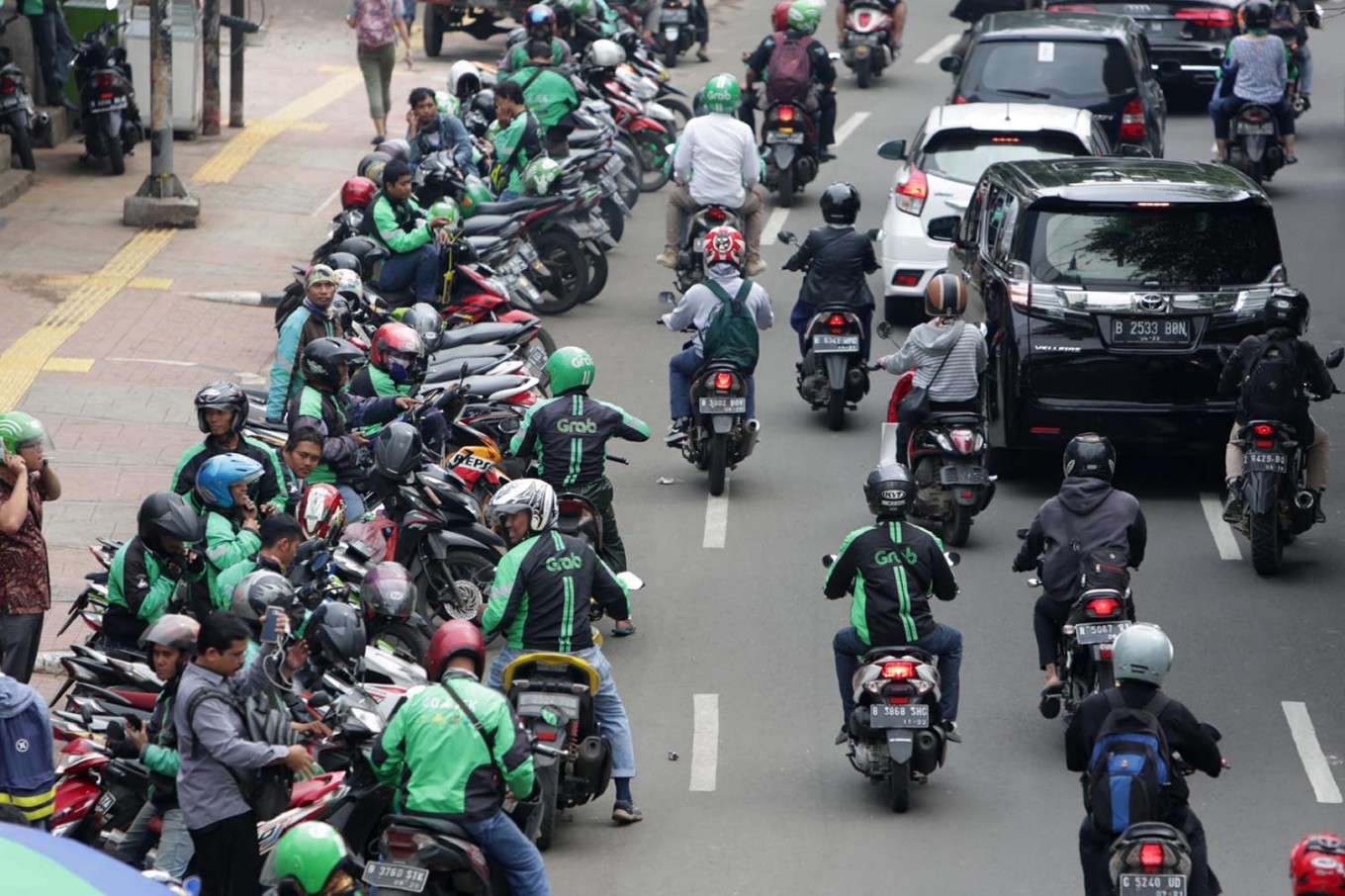Popular Reads
Top Results
Can't find what you're looking for?
View all search resultsPopular Reads
Top Results
Can't find what you're looking for?
View all search results75% of survey respondents reject regulated ride-hailing 'ojek' fares
Economists say that the sudden drop in customers could eliminate the income from higher fares and could also impact economic growth.
Change text size
Gift Premium Articles
to Anyone
T
he Research Institute of Socio-Economic Development (RISED) in Surabaya has released on Monday a survey on ride-hailing ojek (motorcycle taxi) customers, in which 75 percent of respondents rejected the new government-regulated fares for exceeding the amount they were willing to pay.
The survey, which involved 3,000 respondents, found that 47.6 percent refused to spend an additional Rp 5,000 (35 US cents) on their daily ojek rides, while 27.4 percent refused to pay even a single rupiah more. The remaining 25 percent accepted the new fares.
Since the Transportation Ministerial Regulation (Permen) No. 12/2019 came into effect on May 1, RISED estimated that ride-hailing ojek customers in Greater Jakarta spent up to Rp 15,000 more on the service each day, an additional Rp 11,000 per day in other cities on Java, Bali and Sumatra, and an additional Rp 12,000 per day in other regions.
RISED lead researcher Rumayya Batubara told Jakarta media that about 75.2 percent of ride-hailing ojek customers were of the lower-middle income bracket who earned less than Rp 3.5 million per month.
Rumayya said that, contrary to the government’s intent, the price hike thus did not guarantee a higher income for ojek drivers, as a 75 percent decline in their customer base could easily outweigh the greater income they made from charging higher fares.
“Therefore, the government must be careful when setting the fares for each zone. It must take into particular consideration the lower purchasing power of consumers outside Greater Jakarta,” he said.
Economist Fithra Faisal concurred with Rumayya, saying that such a drastic reduction in customers might ultimately stifle the country’s economic growth. Ride-hailing customers sustained the livelihoods not only of ojek drivers, but also of the thousands of small and medium enterprises that relied on ride-hailing ojek to deliver their goods.
“Ride-hailing helps maintain consumption levels, which maintain transaction volume, which maintains economic growth. We need as many industries as possible – including ride-hailing – to sustain above five percent growth and thus, escape the middle-income trap,” he stressed. (bbn)










